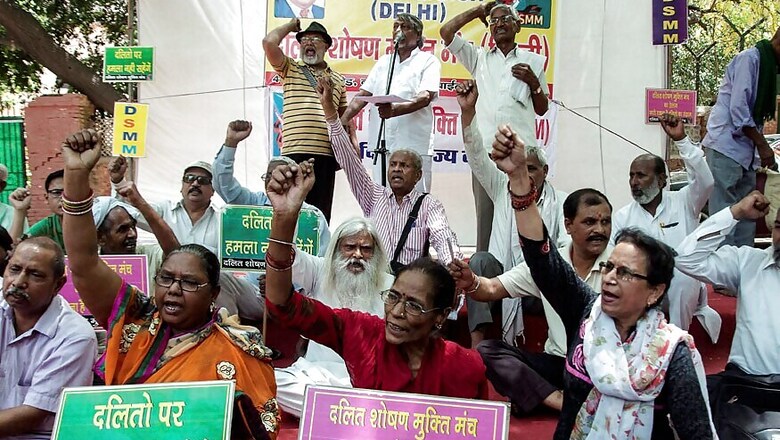
views
New Delhi: The Kerala government has decided to ban caste-indicator words like ‘Dalit’ and ‘Harijan’ from its official communication, a directive that has raised many questions. The order was issued on the basis of recommendation from Kerala State Commission for Scheduled Castes and Scheduled Tribes chairman Justice PN Vijayakumar.
Speaking to News18, Vijayakumar said the commission was yet to decide the words that will replace ‘Dalit’ and ‘Harijan’ in official communication. The Information and Public Relation Department of the state government, in a circular dated October 7, said removal of these words, along with the word ‘Keezhalar’ (scheduled communities), would help in curbing discrimination against these communities.
Sources in the Commission told News18 that a complaint was filed by Malayali students in IIT-Madras and other professional colleges saying that use of such terms by the state government was seen as a blot on their identity.
Many Dalit activists, however, said the community has a historical and social background, which cannot be taken away by mere name changing.
“It has origins deep rooted in Ambedkarite and Gandhian values. One shouldn’t take this matter lightly. For many, Dalit as a word is sign of empowerment,” said Manuel, a Dalit activist based in Kerala.
Another activist, Kuffir, said those who impose social boycott, which the government is trying to curb, know who the Dalits and non-Dalits are.
“Yes, there have been Dalit voices who have said such words shouldn’t be used. But in villages, where discrimination happens in most regressive ways, everyone knows who belongs to scheduled caste or tribe. It’s just a political move which will not yield any results on the ground,” he said.
The word Dalit comes from ‘dal’, which means broken in Sanskrit. The founder of Satya Shodak Samaj, Jyotirao Phule, is considered to be the first person to have used the term in the 19th century. The term was, later on, popularised by BR Ambedkar.
Kerala has, of late, seen many cases of discrimination against backward classes. Earlier this year, Dalit protestors broke down a 400-metre wall around the compound of a temple that was built by the Nair Service Society in Choonda, Ernakulam. The wall was built to restrict entry of the Dalits.
In another incident, the Chakkliya community in Ambedkar colony in Palakkad refused to bury the dead from the higher caste community after the Chakkliyas, considered among the lowest in the SC bracket, were not allowed to draw water from public tank. It was also widely reported that the tea shops in this area used two sets of glasses to serve tea — one for upper castes and the other for those from lower castes.




















Comments
0 comment